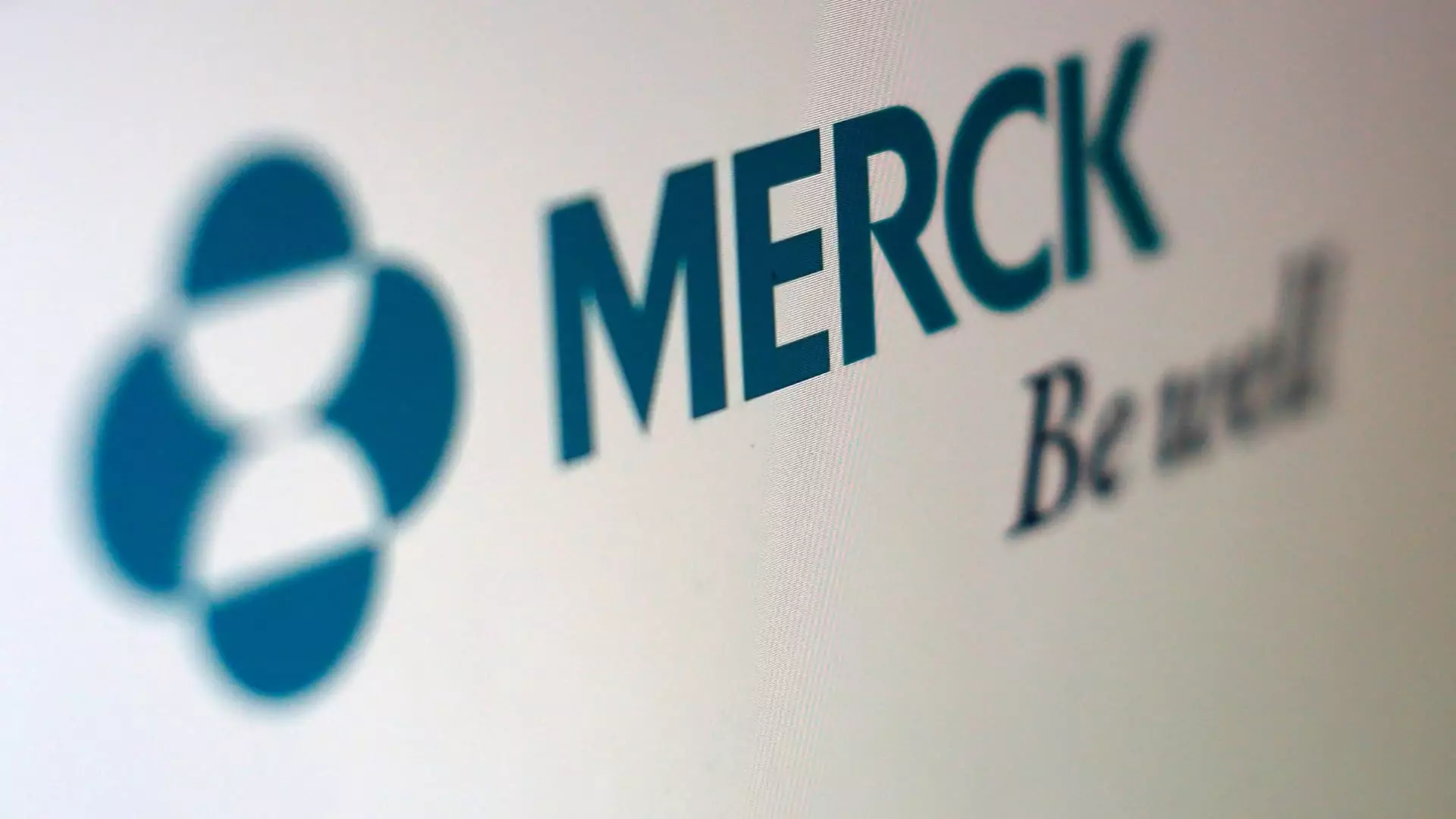In an era where public health concerns are skyrocketing, the recent FDA approval of Merck’s innovative respiratory syncytial virus (RSV) treatment, branded as Enflonsia, pushes the boundaries of pediatric healthcare. This landmark approval not only introduces a formidable opponent to existing therapies from contenders like Sanofi and AstraZeneca but signifies a pivotal shift in the fight against a virus that relentlessly claims the lives of countless infants and older adults. More than just a new medical product, Enflonsia represents hope and a much-needed lifeline for families grappling with RSV—the virus that has become synonymous with seasonal panic.
A Timely Introduction to a Critical Market
With RSV season approaching—typically spanning from fall to spring—Merck plans to roll out Enflonsia just in time for heightened vulnerability among infants. The timing couldn’t be more strategic. Dr. Dean Li, president of Merck Research Laboratories, is resolute about transforming the landscape of RSV treatment. While families have historically been left scrambling for solutions as healthcare systems buckle under seasonal RSV waves, the immediate availability of Enflonsia could substantially alleviate the emotional and logistical burdens carried by parents.
Merck, however, is not merely selling a vaccine; it is selling peace of mind. In a world where parents fear their children’s health more than ever, making a product that can potentially curb RSV-related hospitalizations—by an astounding 84%—is both a medical and marketing triumph. The implications are profound; a significant reduction in hospital visits translates into fewer emotional and financial strains on families and healthcare systems alike.
A Battle of Efficacy and Access
Unlike its competitor Beyfortus, whose dosage regimen hinges on infant body weight, Merck’s Enflonsia simplifies administration by being weight-agnostic. This critical distinction could ultimately lead to faster treatment responses, minimizing the likelihood of RSV-related complications in infants who are among the most vulnerable demographics. In a market characterized by excessive bureaucratic hurdles and systemic inefficiencies, Merck’s approach appears to set a new standard.
Yet, competition is fierce. Sanofi has already announced an aggressive strategy to boost Beyfortus supply, especially after it suffered from shortages during the last RSV season. Such efforts, although commendable, reveal a dark underbelly of the pharmaceutical industry where demand volatility can dictate the availability of life-saving medications. The stark reality is that while Merck’s developments are promising, the underlying question remains: will the healthcare system support the distribution of these treatments effectively, ensuring they reach the families that need them the most?
Competition and the Future of RSV Treatment
The landscape for RSV treatments is increasingly crowded. Beyond Merck and Sanofi, giants like Pfizer, GSK, and Moderna are also in the fray, albeit primarily targeting adult populations and pregnant women. The FDA’s recent pause in trials for RSV vaccines in young children emphasizes ongoing safety concerns that further complicate the scenario. It’s heartening to witness companies channel resources towards combating a virus that wreaks havoc on our youngest and most vulnerable, yet the path ahead is fraught with obstacles.
As outside vaccine advisors to the CDC gather for their essential meetings, the anticipation is palpable within the medical and pharmaceutical communities. All eyes are on forthcoming recommendations, which could reshape vaccine strategies not only for RSV but for other infectious diseases plaguing the populace. Such collaborative efforts signal a progressive acknowledgment: when it comes to public health, it is imperative that companies relinquish cut-throat competition in favor of collective advancement.
The Ethical Considerations in Pharmaceutical Timing
The ethical dimensions surrounding the timing of pharmaceutical launches are often overshadowed by business statistics. Merck’s proactive launch of Enflonsia amidst an impending RSV season raises questions about the ethical responsibility of pharmaceutical companies. While it is critical that companies maintain profitability, one cannot help but ponder whether such profit-driven motives overshadow the urgent need for accessible healthcare solutions. As our society becomes increasingly aware of the moral implications of healthcare inequality, companies must strive to prioritize human health alongside financial gain for true progress to occur.
Amid the medical marvels represented by Enflonsia and its competitors, a cautious optimism is warranted. Families now stand at the precipice of change, equipped with potentially life-saving treatments, yet the monumental task remains to ensure availability, trust, and efficacy in this brave new healthcare era.

